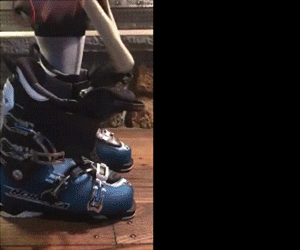snow addict
Ski Diva Extraordinaire
The book "Inner Skiing" that I found on Amazon is by a man who had written a series of of Inner Games books, came out in 1997. Doesn't seem connected to Mermer's book.
I read this one too. I actually read it first. I found this website not long after I decided to I want to ski the hard stuff so when I saw "In the Yikes Zone" I searched it in amazon it was out of print and prices on the used one were ridiculous, but Inner Skiing was recommended on the book page and it was cheap
 It actually liked it much more and it was shorter. And it's practical. I was looking forward to some insights in the 'Yikes Zone' as it written by a woman but couldn't relate to it at all. Though when she was writing about non-skiing issues it was more interesting.
It actually liked it much more and it was shorter. And it's practical. I was looking forward to some insights in the 'Yikes Zone' as it written by a woman but couldn't relate to it at all. Though when she was writing about non-skiing issues it was more interesting.
